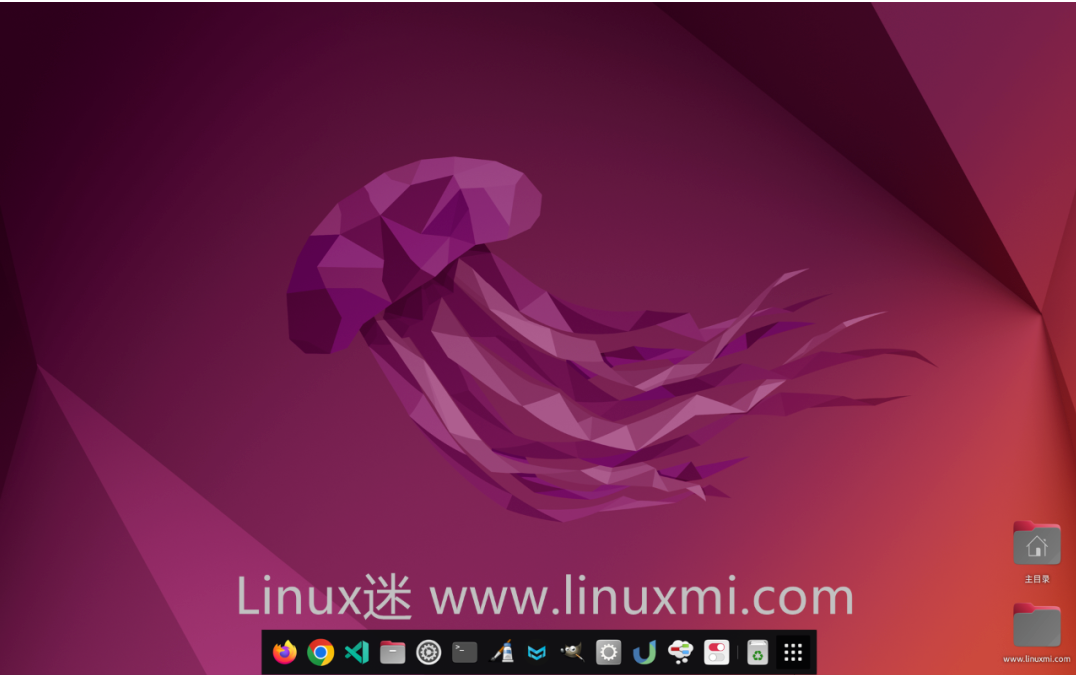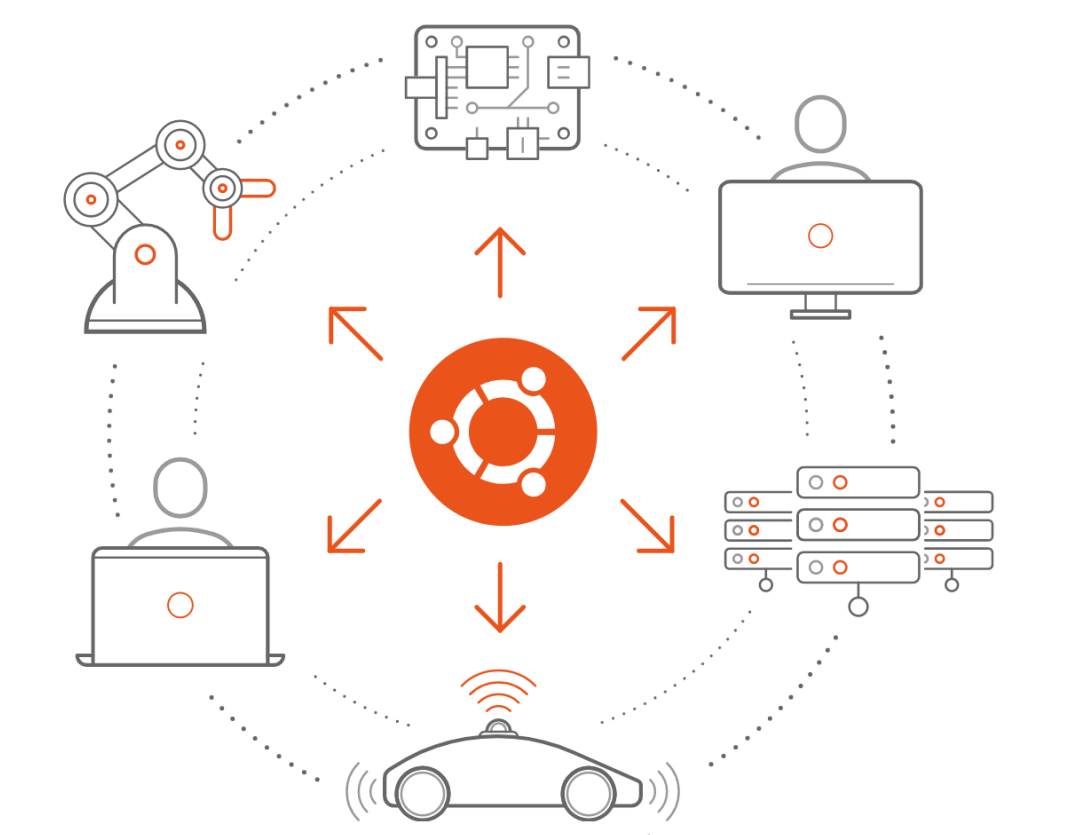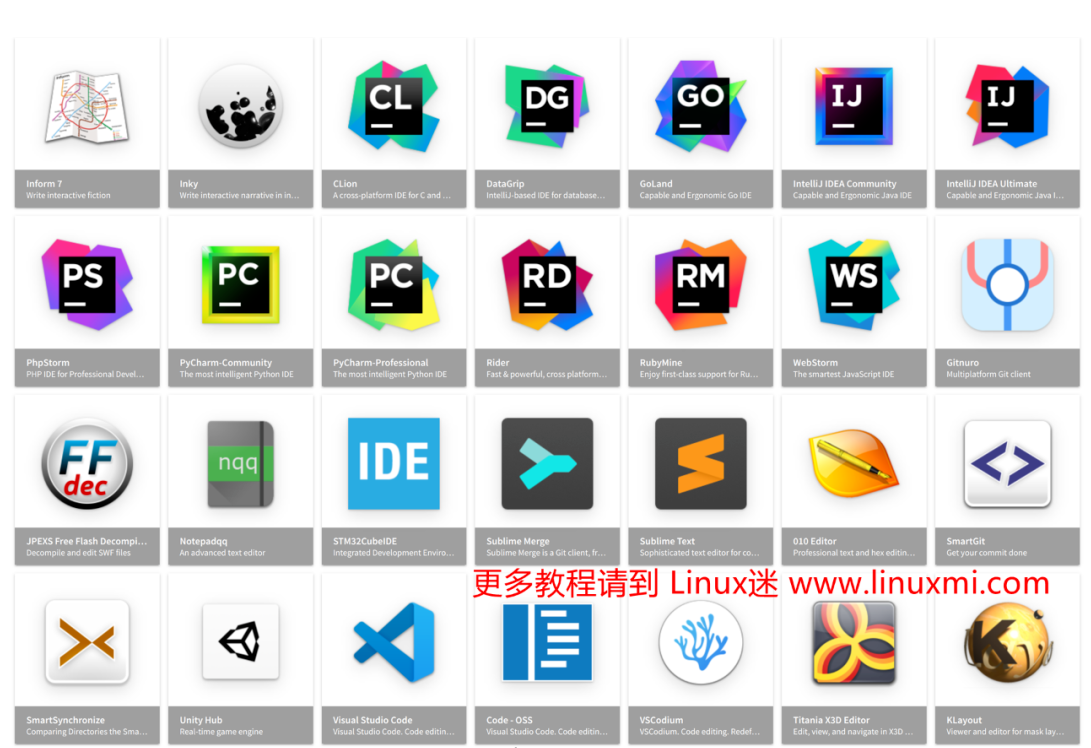The ideal Linux distribution for software developers
Ubuntu is an operating system widely used for development by programmers around the world. So, what makes Ubuntu so suitable for developing software?
Ubuntu is one of the most widely used Linux distributions. It's stable, reliable, well-maintained, and has a large community of supporters.
According to a recent HackerEarth survey, Ubuntu is the preferred Linux operating system among software developers, making it the most commonly used open source operating system for code development and deployment. But why is this so?

Why is Ubuntu loved by many people?
According to DistroWatch, a leading website that provides the latest trends and information on Linux distributions, we can see that Ubuntu is one of the most widely used Linux distributions. Ubuntu is not only famous among software engineers but also among regular users and Linux newbies.
Ubuntu Desktop is user-friendly and beautiful, plus it's very stable and comes with tons of tools to get the job done, whether you're a photographer, artist, or accountant.
Ubuntu's large community of followers means you can easily find help on the Internet. To show how trustworthy this operating system is, there are many other great distributions that are in turn based on Ubuntu. Some examples are Pop!_OS, Lubuntu and elementary OS.
If you are a software developer or engineer looking for a great Linux distribution, then Ubuntu is definitely a strong candidate worth considering.
1. Easy to integrate

One of the most critical challenges that software engineers must overcome is how well they integrate with other systems. For example, if you develop a C# Web API on Linux, how easy is it to deploy it in an environment that closely resembles your local environment?
Fortunately, Ubuntu is ubiquitous and can run on almost any infrastructure or device you can think of. Ubuntu Server powers many servers on-premises and in the cloud, such as Azure, Amazon Web Services (AWS), Google Cloud Platform (GCP), and more. Ubuntu Core runs on IoT devices. You can also run Ubuntu on ARM-based architectures such as the Raspberry Pi.
Ubuntu can run on these wide range of devices, allowing engineers to easily test, integrate and deploy software.
2. Huge community
Ubuntu has been in development since the early 2000s and has gathered a large community of users and followers over the years. Software engineers love Ubuntu because of its stability.
When many people use Linux distributions, such as Ubuntu, it can easily solve the technical challenges you may face because you can easily find resources on the Internet.
You can also get much-needed help and documentation from the Debian community (the distribution that Ubuntu is based on). Debian is well documented and is known for its core stance on stability rather than bling.
As mentioned before, there are many other Linux distributions based on Ubuntu. This also allows engineers to get help with Ubuntu-related issues from users of these other distributions.
3. Extensive programming tools

Ubuntu comes with a wide range of free and open source development tools to meet the needs of embedded software developers, mobile app developers, API developers, and more.
Whether you are a C# developer, a Python expert, a Ruby on Rails developer, or an engineering student, Ubuntu has all the tools to help you get started.
In addition to software development tools, Ubuntu also comes with productivity and communication tools such as Slack, Microsoft Teams, document editors, and image and video processing software.
For Linux software developers, Ubuntu allows you to easily distribute your software through the Snap Store.
4. Certified Hardware
Most major PC and hardware manufacturers such as Dell, Lenovo, HP, and the Raspberry Pi Foundation offer Ubuntu certification for their machines. This means that if you are an organization or an engineer who has critical projects on your PC, you can rest assured that your PC is ready to run Ubuntu without any hitches.
Most governments and enterprises also run certified Ubuntu desktops and servers; this allows developers and engineers to build tools targeting Ubuntu, knowing full well that the hardware it will run on has been well tested for compatibility beforehand.
Canonical provides up to 10 years of security updates for Ubuntu-certified computers running LTS versions of Ubuntu.
5. Comprehensive software support
With Ubuntu, users of LTS versions receive free software updates and security patches for at least five years after release.
You can also get extended software, security updates, and bug fixes at an affordable cost through the Ubuntu Advantage Program. This allows you to get the best support if you encounter any technical challenges.
Additional benefits include real-time patching, which allows you to update software on critical infrastructure without restarting PCs or servers.
Ubuntu is great for developing software!
Ubuntu is an excellent choice for software developers. In addition to a supportive community, it also gives you access to a variety of tools to start developing software on your desktop.
Want to test how your software will run on an Ubuntu production server? You can simply install Ubuntu Server on a VM or backup PC.
The above is the detailed content of The ideal Linux distribution for software developers. For more information, please follow other related articles on the PHP Chinese website!

Hot AI Tools

Undresser.AI Undress
AI-powered app for creating realistic nude photos

AI Clothes Remover
Online AI tool for removing clothes from photos.

Undress AI Tool
Undress images for free

Clothoff.io
AI clothes remover

AI Hentai Generator
Generate AI Hentai for free.

Hot Article

Hot Tools

Notepad++7.3.1
Easy-to-use and free code editor

SublimeText3 Chinese version
Chinese version, very easy to use

Zend Studio 13.0.1
Powerful PHP integrated development environment

Dreamweaver CS6
Visual web development tools

SublimeText3 Mac version
God-level code editing software (SublimeText3)

Hot Topics
 1378
1378
 52
52
 Difference between centos and ubuntu
Apr 14, 2025 pm 09:09 PM
Difference between centos and ubuntu
Apr 14, 2025 pm 09:09 PM
The key differences between CentOS and Ubuntu are: origin (CentOS originates from Red Hat, for enterprises; Ubuntu originates from Debian, for individuals), package management (CentOS uses yum, focusing on stability; Ubuntu uses apt, for high update frequency), support cycle (CentOS provides 10 years of support, Ubuntu provides 5 years of LTS support), community support (CentOS focuses on stability, Ubuntu provides a wide range of tutorials and documents), uses (CentOS is biased towards servers, Ubuntu is suitable for servers and desktops), other differences include installation simplicity (CentOS is thin)
 How to install centos
Apr 14, 2025 pm 09:03 PM
How to install centos
Apr 14, 2025 pm 09:03 PM
CentOS installation steps: Download the ISO image and burn bootable media; boot and select the installation source; select the language and keyboard layout; configure the network; partition the hard disk; set the system clock; create the root user; select the software package; start the installation; restart and boot from the hard disk after the installation is completed.
 Centos stops maintenance 2024
Apr 14, 2025 pm 08:39 PM
Centos stops maintenance 2024
Apr 14, 2025 pm 08:39 PM
CentOS will be shut down in 2024 because its upstream distribution, RHEL 8, has been shut down. This shutdown will affect the CentOS 8 system, preventing it from continuing to receive updates. Users should plan for migration, and recommended options include CentOS Stream, AlmaLinux, and Rocky Linux to keep the system safe and stable.
 Detailed explanation of docker principle
Apr 14, 2025 pm 11:57 PM
Detailed explanation of docker principle
Apr 14, 2025 pm 11:57 PM
Docker uses Linux kernel features to provide an efficient and isolated application running environment. Its working principle is as follows: 1. The mirror is used as a read-only template, which contains everything you need to run the application; 2. The Union File System (UnionFS) stacks multiple file systems, only storing the differences, saving space and speeding up; 3. The daemon manages the mirrors and containers, and the client uses them for interaction; 4. Namespaces and cgroups implement container isolation and resource limitations; 5. Multiple network modes support container interconnection. Only by understanding these core concepts can you better utilize Docker.
 What are the backup methods for GitLab on CentOS
Apr 14, 2025 pm 05:33 PM
What are the backup methods for GitLab on CentOS
Apr 14, 2025 pm 05:33 PM
Backup and Recovery Policy of GitLab under CentOS System In order to ensure data security and recoverability, GitLab on CentOS provides a variety of backup methods. This article will introduce several common backup methods, configuration parameters and recovery processes in detail to help you establish a complete GitLab backup and recovery strategy. 1. Manual backup Use the gitlab-rakegitlab:backup:create command to execute manual backup. This command backs up key information such as GitLab repository, database, users, user groups, keys, and permissions. The default backup file is stored in the /var/opt/gitlab/backups directory. You can modify /etc/gitlab
 How to use docker desktop
Apr 15, 2025 am 11:45 AM
How to use docker desktop
Apr 15, 2025 am 11:45 AM
How to use Docker Desktop? Docker Desktop is a tool for running Docker containers on local machines. The steps to use include: 1. Install Docker Desktop; 2. Start Docker Desktop; 3. Create Docker image (using Dockerfile); 4. Build Docker image (using docker build); 5. Run Docker container (using docker run).
 What to do after centos stops maintenance
Apr 14, 2025 pm 08:48 PM
What to do after centos stops maintenance
Apr 14, 2025 pm 08:48 PM
After CentOS is stopped, users can take the following measures to deal with it: Select a compatible distribution: such as AlmaLinux, Rocky Linux, and CentOS Stream. Migrate to commercial distributions: such as Red Hat Enterprise Linux, Oracle Linux. Upgrade to CentOS 9 Stream: Rolling distribution, providing the latest technology. Select other Linux distributions: such as Ubuntu, Debian. Evaluate other options such as containers, virtual machines, or cloud platforms.
 How to mount hard disk in centos
Apr 14, 2025 pm 08:15 PM
How to mount hard disk in centos
Apr 14, 2025 pm 08:15 PM
CentOS hard disk mount is divided into the following steps: determine the hard disk device name (/dev/sdX); create a mount point (it is recommended to use /mnt/newdisk); execute the mount command (mount /dev/sdX1 /mnt/newdisk); edit the /etc/fstab file to add a permanent mount configuration; use the umount command to uninstall the device to ensure that no process uses the device.




